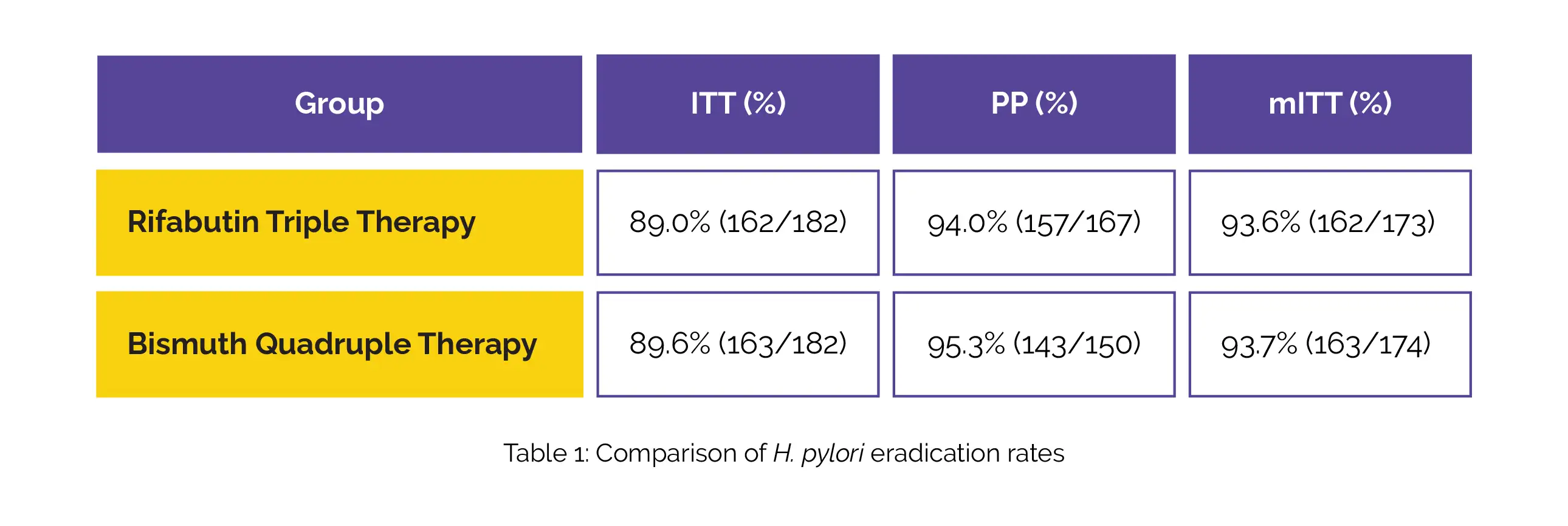Categories
Change Password!
Reset Password!


Rifabutin-containing triple therapy can be considered as an alternative to conventional Bismuth quadruple therapy for rescue treatment of H. pylori infection.
In a multicenter, randomized controlled trial, Rifabutin triple therapy presented as an effective alternative approach to the traditional Bismuth quadruple therapy as it offered the advantage of reduced side effects and improved patient adherence in people with Helicobacter pylori (H. pylori) infection. Researchers aimed to assess the effectiveness and safety of Rifabutin-containing triple therapy in contrast to Bismuth quadruple therapy for H. pylori elimination.
Participants (n = 364) who had experienced two or more unsuccessful treatments were included in the study. They were randomly divided into two groups:
The study assessed the susceptibility of the bacteria to these antimicrobial treatments using agar dilution and E-test methods. The rate of H. pylori elimination for the Bismuth quadruple therapy group and Rifabutin triple therapy group, as determined by modified intention-to-treat (mITT), per-protocol (PP), and intention-to-treat (ITT) analyses, are depicted in Table 1:

Therefore, Rifabutin triple therapy appears to be a viable substitute to traditional Bismuth quadruple therapy for rescue treatment of H. pylori, with lesser side effects and higher adherence.
The Journal of Infectious Diseases
Rifabutin-Containing Triple Therapy Versus Bismuth Quadruple Therapy for Helicobacter pylori Rescue Treatment: A Multicenter, Randomized Controlled Trial
Jinnan Chen et al.
Comments (0)